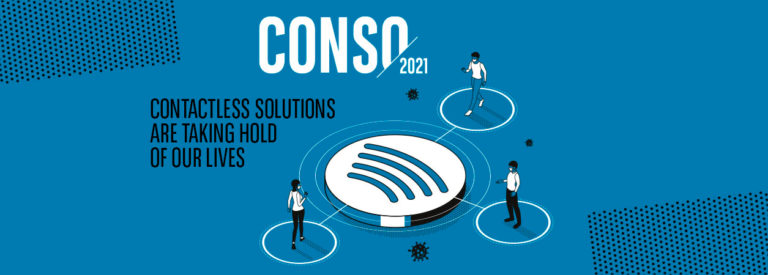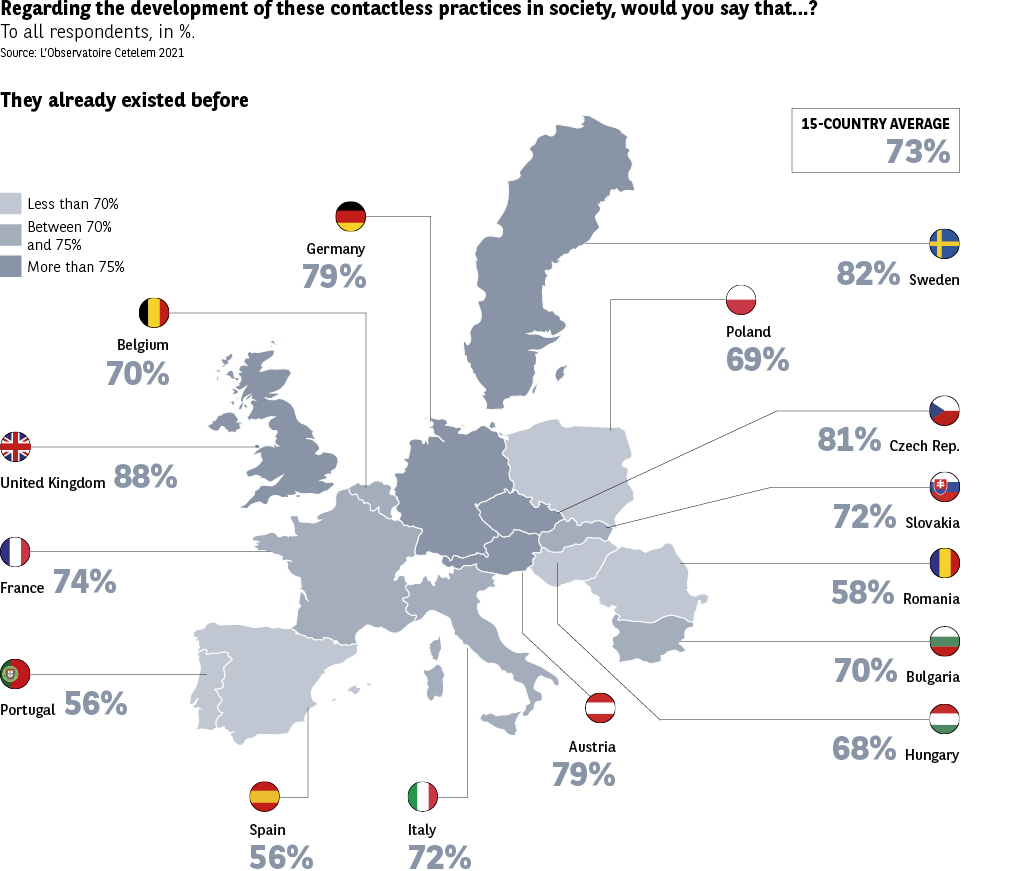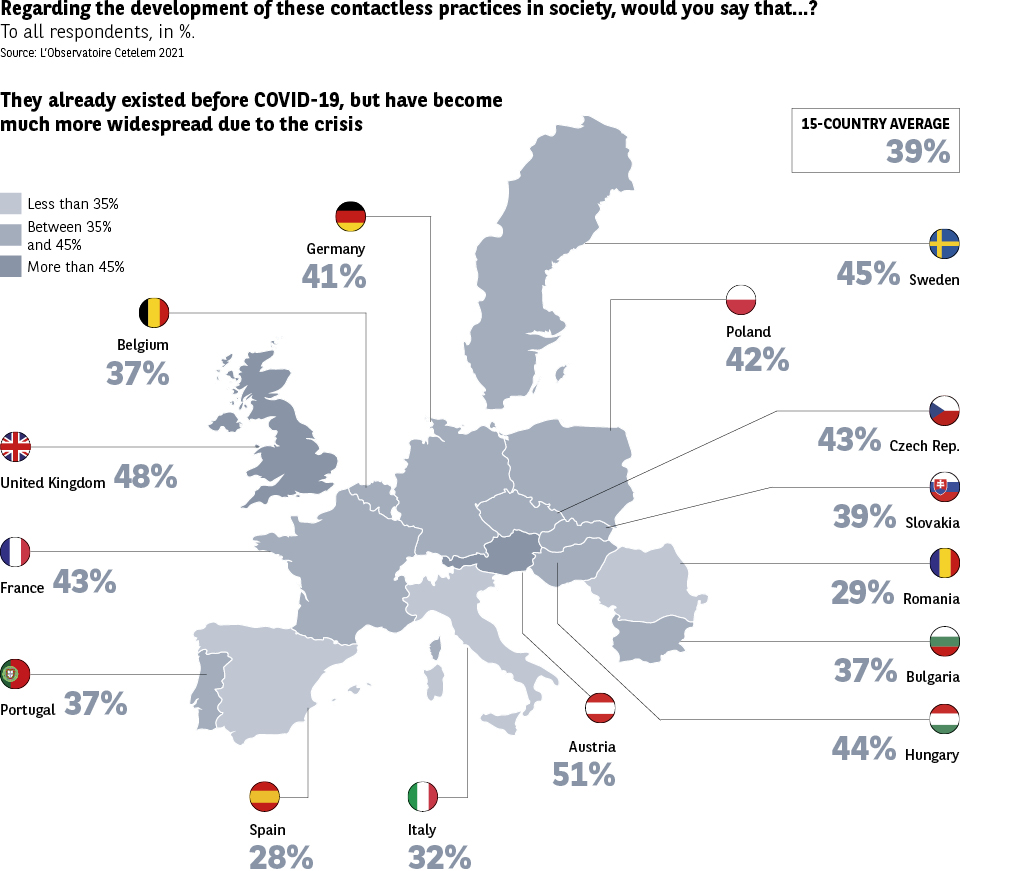The health crisis has amplified or placed a spotlight on contactless lifestyles


Practices that predate the pandemic…
As we will see repeatedly elsewhere in the survey, this pattern can be observed in various situations and opinions. Indeed, this is the case when respondents are asked whether contactless solutions were already in place before the health crisis was upon us. On the whole, Europeans state this to be the case (73%) (Fig. 17). But this view is most commonly held in the Northern group. The British, Swedes and Germans are the most likely to be of this belief (88%, 82% and 79%). The Austrians and Czechs agree with the statement in similar proportions (79% and 81%). Respondents in Southern Europe are far from displaying this level of conviction. The Spanish and Portuguese are identical cases in point (56%). Between the two extremes, the French and Italians post fairly average scores (74% and 72%, respectively).
… and whose development has been sped up by the crisis
The view that contactless practices already existed is therefore dominant, but Covid-19’s role in expanding their use is just as unequivocal. Close to 4 out of 10 Europeans believe that the crisis has played such a role (Fig. 18). The countries in the Northern group are again fairly united in their opinion, while the Southern countries, as well as Romania, are less convinced of the pandemic’s role as an accelerator of the trend. However, these countries do agree that the health crisis has helped to place a spotlight on contactless practices. This is the case for 44% of Portuguese and Spanish respondents.
KEY FIGURES
- 5.4 / 10, average score for the national situation (+0.7 pts).
- 6.2 / 10, average score for personal circumstances (+0.5 pts).
- 1 in 2 Europeans believe that prices have increased significantly (+25 pts).
- +7 pts the desire to spend more.
- +10 pts spending on travel and leisure.
- +4 pts the feeling that purchasing power has increased.


